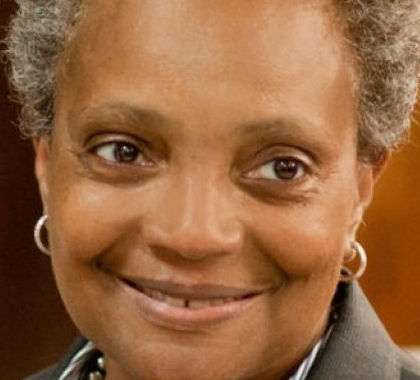Chicago Mayor Lori Lightfoot claims to be an ‘uber’-progressive politician, however, her decision to raise fees by 74 percent on rideshare services such as Uber and Lyft (which went into effect January 1, 2020) is the antithesis of so-called progressivism.
According to the Cambridge Dictionary, progressivism is defined as “a social or political movement that aims to represent the interests of ordinary people through political change and the support of government actions.” Hiking fees on passengers who choose to use rideshare services in Chicago is in stark opposition to the “interests of ordinary people.”
First, rideshare services—which fall under the innovative and popular “sharing economy”—are themselves the embodiment of progress. Since the arrival of Uber and Lyft (as well as Airbnb), millions of Chicagoans have decided they would rather use these convenient, efficient services instead of public transport or taxi cabs.
In Chicago alone, rideshare use has skyrocketed by more than 270 percent in recent years, according to the Mayor’s office. It is blatantly obvious that a large number of residents and visitors to the Windy City prefer opening an app on their smartphone to dialup an Uber or Lyft, as opposed to trying to hail a taxi or riding public transportation.
Uber spokeswoman Kelley Quinn put the issue in succinct terms during the debate over the new fees. According to Quinn, “As a candidate, the mayor said she was committed to equity, yet she is proposing to hike taxes by nearly 80 percent on underserved communities who do not contribute to congestion and lack reliable access to transportation.”
Why would the mayor of Chicago seek to punish these patrons by forcing them to pay more money to the city for the privilege of operating in its jurisdiction? If Lightfoot actually sought to represent the interests of the people, she would reduce, not raise, taxes on rideshare passengers.
Second, if the mayor cared about protecting ordinary Chicagoans, she would not be encouraging them to ride the city’s public transport instead of an Uber or Lyft. For those of us who live near or in Chicago (including this author), we are well aware of the violence and hazards that people experience all too often while riding Chicago’s “L” system or public buses.
In fact, this past summer, crime on the Chicago Transit Authority’s L system spiked by more than 60 percent. No wonder riders are choosing Uber and Lyft to get around the city. In Chicago, riding public transportation can literally be life-threatening.
Third, Lightfoot ought to be well aware that Chicagoans already face one of the highest tax burdens in the nation. According to Truth in Accounting, Chicago’s taxpayer burden is a mind-boggling $38,100 per taxpayer. Once again, how can Lightfoot justify raising fees on Chicagoans when they already are under an all-out attack from city tax collectors? In short, she cannot.
No doubt, politics plays a pivotal role in Lightfoot’s latest tax hike. Keep in mind, while the mayor was busy excoriating rideshare services, she lowered the fee for taxi medallion renewals from $1,000 to $500. Could the mayor be placating to the taxi drivers union? You can decide that for yourself.
Lightfoot is frantically trying to plug the Windy City’s $838 million budget gap. To do so, she has pushed for a horde of new taxes and fees. Unfortunately, many of these taxes—especially rideshare taxes—are regressive taxes that disproportionately impact hardworking Chicagoans.
Chicagoans are desperate for relief from the taxman. On the other hand, Chicago’s politicians—including Mayor Lightfoot— are desperate to put a Band-Aid on the city’s gushing budget gap.
Apparently, Mayor Lightfoot is willing to cast aside her progressive values in a rather desperate attempt to tackle the city’s out-of-control debt by nickel and diming her constituents. Sadly, in Chicago, desperate times call for desperate measures.





